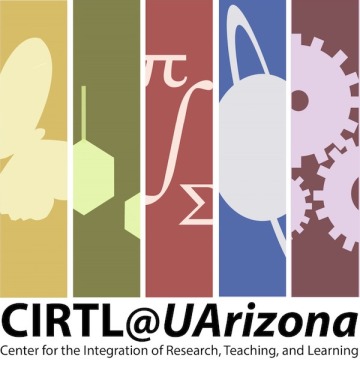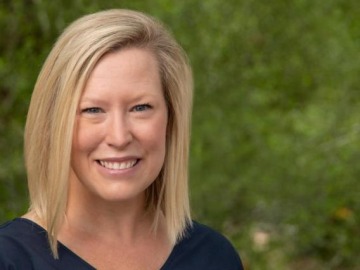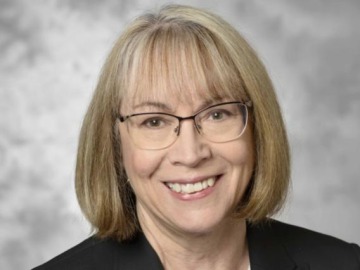Evidence-based teaching and grad student preparation get a boost

Membership in the national network enables the University to better prepare grad students for their future careers in academia.

Kristin Winet, CIRTL program administrator and faculty member in the Department of English

Gail Burd, senior vice provost for academic affairs, teaching and learning and the institutional leader for the University's CIRTL membership
The University's newly established chapter of the Center for the Integration of Research, Teaching and Learning – a national network that aims to prepare graduate students and postdoctoral fellows for future faculty positions – will kick off two pilot programs this semester. One focuses on a mentored co-teaching experience to give postdocs a short but intensive teaching experience using evidence-based teaching methods, and the other will focus on how to do classroom-based research.
The University became a member of CIRTL in July. The network emphasizes professional development by encouraging future faculty members to join learning communities, participate in teaching workshops, and gain experience in the interdisciplinary field of teaching and learning.
The University's chapter, housed in the Office of Academic Affairs and known as CIRTL@UArizona, started recruiting in the fall and now has more than 70 members, including 30 graduate students, 19 postdocs and a mix of administrators and faculty and staff members.
CIRTL members progress through three certificate levels. Level 1 introduces future faculty to evidence-based teaching methods, level 2 involves practicing teaching as learning and classroom-based research projects, while level 3 requires presenting or publishing research about teaching.
"In the Office of Academic Affairs, we have robust faculty engagement through the Faculty Learning Communities program, the Office of Instruction and Assessment, CUES (the Center for University Education Scholarship), workshops, minicourses and guest lectures. But we didn't have a lot to offer graduate students and postdocs," said Kristin Winet, CIRTL@UArizona program administrator and a lecturer in the Department of English. "We wanted to offer professional development opportunities geared toward them as they continue their graduate journey."
CIRTL, which is based at the University of Wisconsin – Madison, was founded in 2003 through the National Science Foundation's Center for Teaching and Learning. Though the network has traditionally focused on future faculty in STEM, the national organization and local chapter both welcome members from all disciplines who are interested in improving undergraduate education.
Gail Burd, senior vice provost for academic affairs, teaching and learning and the institutional leader for the University's CIRTL membership, said a colleague at the University of Wisconsin encouraged her to apply for CIRTL membership.
"Based on our success supporting faculty with evidence-based teaching practices in undergraduate courses ... a core team of innovative faculty, administrators, students and postdocs decided to apply for CIRTL membership to expand our professional development to future faculty," she said. The earlier success was stimulated by a grant from the Association of American Universities.
Evidence-based, learner-centered teaching is based on classroom research about what teaching methods and strategies best help students of all backgrounds and abilities succeed in the classroom.
"Good teaching is good teaching, and for many new teachers, content often gets prioritized over how the content is taught," Winet said. "We want to prepare our future teachers with evidence-based, learner-centered, inclusive teaching practices and let them know that there are resources out there to help them improve their teaching."
Learner-centered teaching, she said, acknowledges that learning happens when learners are empowered to learn. "It is our role as faculty in higher education to ensure that our students actively engage in our subjects through collaboration, discussion, participation, reflection and other techniques that help facilitate their learning."
Winet said she believes the graduate students and postdocs who participate will be more competitive for future teaching positions.
"Teaching is also important for a research scientist. I intend to do some classroom teaching in my career, but being an effective teacher for trainees in the lab is also very important to me," said Lila Wollman, a postdoctoral research associate in physiology.
CIRTL has three core ideas: learning communities, "teaching-as-research" and "learning-through-diversity."
"What we mean by 'learning-through-diversity' is that when we acknowledge the diversity that our faculty and staff bring to the classroom, we can begin the real work of creating an inclusive teaching environment," Winet said. "Our mission is to provide professional development opportunities that emphasize inclusive excellence in the classroom and how to identify curriculum, teaching and assessment practices that promote learning equitably, inclusively and respectfully."
"Everyone has something valuable to offer," she continued. "As we grow, we want to ensure that our network represents the diversity of our graduate students and postdocs here at the University of Arizona and want to get the word out to those communities that these resources are available to them."
Winet hopes faculty members will encourage their graduate students to participate in the program, especially because learning how to teach can lay the groundwork for their future careers.
"The program can be a great way for graduate students to get a head start on future job searches and teach them how to more fully align their teaching and their research interests," she said.
CIRTL@UArizona also presents a unique opportunity for graduate students to get more involved in university life. When conditions permit, the program plans to host in-person social events. Interested faculty members may also join CIRTL if they'd like to offer courses or workshops or serve as mentors.
"As with our AAU work on STEM education," Burd said, "we expect to expand our CIRTL program to all academic disciplines in the future."
For more information or to join the local chapter, interested graduate students, postdocs, and faculty members can sign up online or email Winet at cirtl@arizona.edu.

